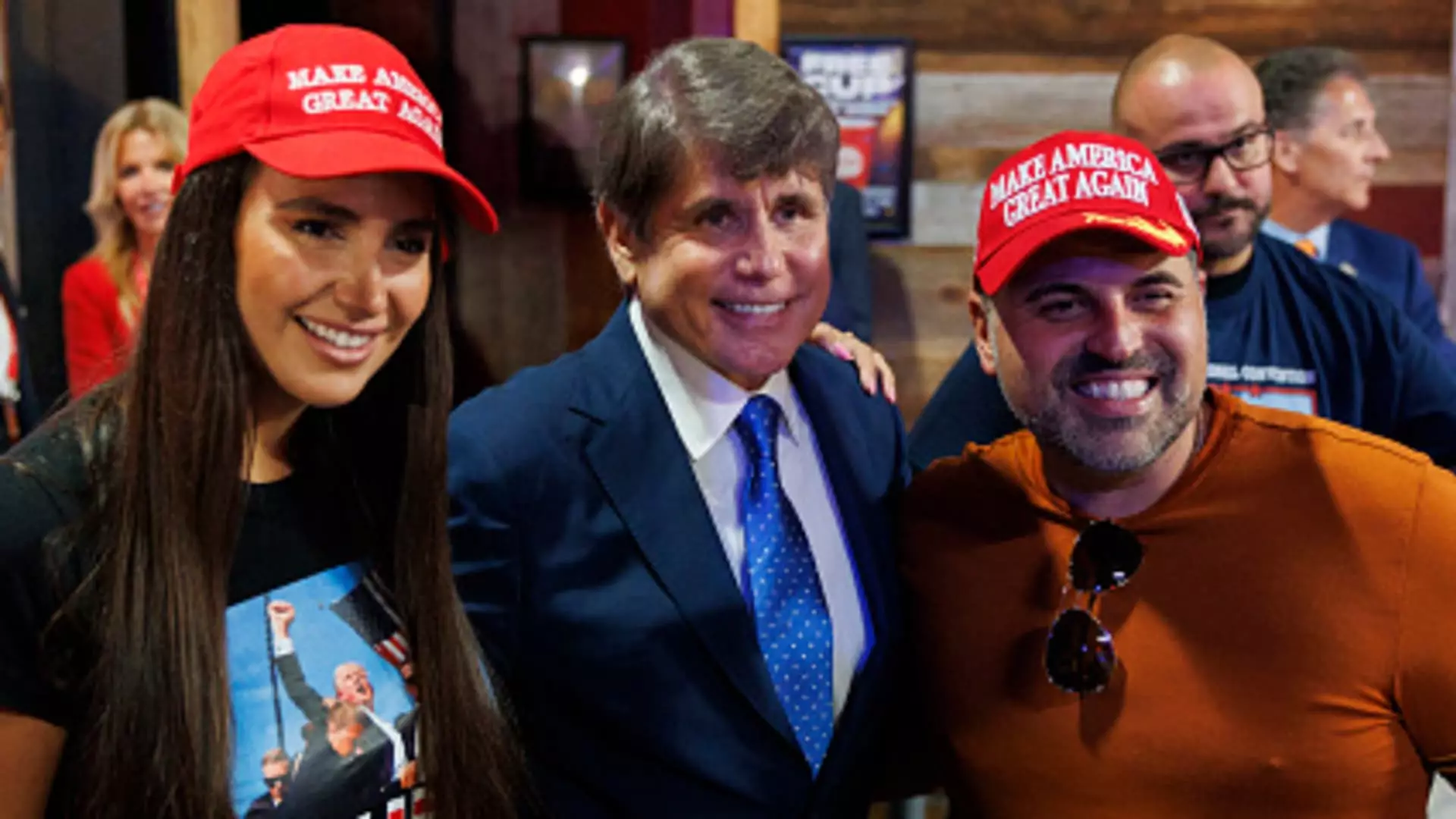The decision by President Donald Trump to issue a full pardon to former Illinois Governor Rod Blagojevich has stirred up a whirlwind of reactions from the political landscape and the public. Blagojevich, a Democrat who served as Illinois’ governor from 2003 to 2009, was infamously convicted of multiple charges, including conspiracy to commit racketeering and attempting to sell Barack Obama’s Senate seat after Obama was elected President in 2008. His actions recorded by the FBI not only subject him to legal scrutiny but also solidified his reputation as a symbol of political corruption in Illinois—an unfortunate title carried by several of the state’s governors.
In 2009 Blagojevich was impeached and removed from office, leading to a lengthy prison sentence that encapsulated a tumultuous period in Illinois politics. Trump’s involvement in this case, specifically his pardon and previous commutation of Blagojevich’s 14-year sentence in 2020, raises important questions about justice and executive power in the political realm.
During a press event in the Oval Office, Trump expressed his admiration for Blagojevich by stating, “I think he’s a very fine person,” encapsulating the unique nature of this pardon. This sentiment reflects a stark contrast to public opinion and sentiments echoed by many within the state of Illinois, particularly among the Republican Congressional delegation, who urged Trump to refrain from intervening in Blagojevich’s case. They warned that allowing such a pardon would send a dangerous message about corruption and accountability in public service.
The context surrounding this pardon goes beyond mere legalities; it intertwines with Trump’s broader narrative of favoring individuals he personally relates to or admires. As a contestant on Trump’s reality television show, “The Celebrity Apprentice,” Blagojevich had already begun to carve out a niche within Trump’s universe. This connection raises ethical considerations about the influence of personal relationships in political pardons and the implications for the rule of law.
The ramifications of this pardon extend into the heart of American political discourse surrounding corruption, transparency, and integrity. For many, Blagojevich epitomizes the corruption that has plagued Illinois’ political climate, with several governors facing similar accusations over decades. Blagojevich’s misconduct underscores a broader societal issue, particularly the perception of political figures exploiting their positions for personal gain.
Critics of the pardon highlight that Trump’s decision could undermine efforts to combat the very culture of corruption that plagued Illinois government for years. The ramifications can be seen as damaging not only to local governance but also to national dialogue on ethics in politics. The prefix of “former” in Blagojevich’s title does little to diminish the reality of his actions, which are still fresh in the minds of Illinois citizens and public officials alike.
Donald Trump’s pardon of Rod Blagojevich represents more than just an individual reinstatement of rights; it reflects a nuanced interplay of celebrity, politics, and public ethics. While Trump may view Blagojevich through the lens of a ‘fine person’ deserving of second chances, the broader narrative invites skepticism over how personal associations can shape judicial decisions. As the discourse continues, the impact of this decision on political integrity remains a question that will resonate in Illinois and beyond for years to come.


Leave a Reply